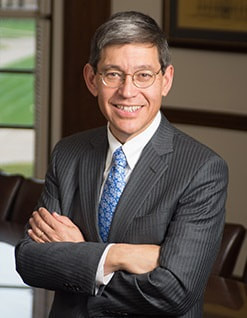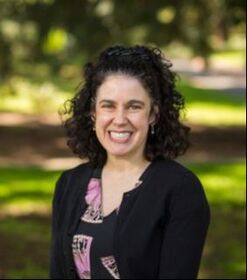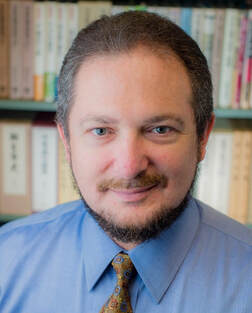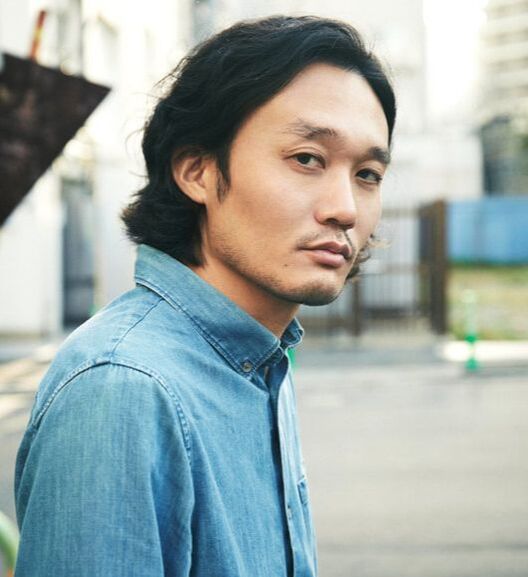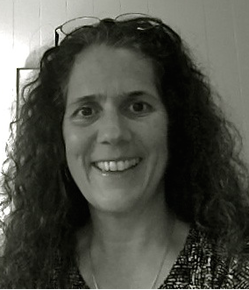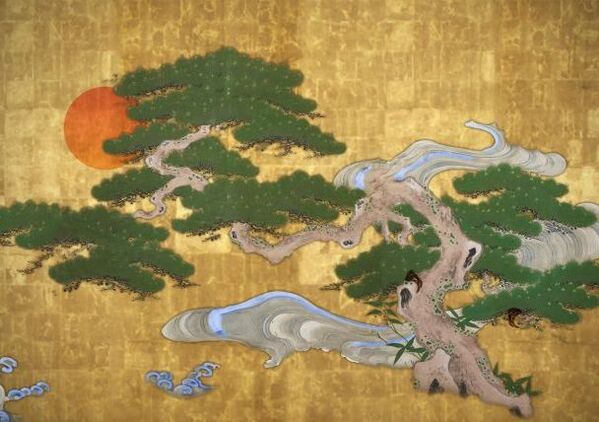JSA Webinar Series, Spring 2021
|
|
Professor Bill Tsutsui
Visiting Scholar Harvard University January 27, 2021
3pm Eastern / 2pm Central Moderator: Professor Paul Dunscomb University of Alaska, Anchorage |
Velveeta of the Sea: Kamaboko
Kamaboko may be “fish” in the same way Processed American Cheese Product is “cheese,” but the story of this family of Japanese fish paste products opens up a surprising tale of industrialized exploitation of the marine commons. Bill Tsutsui extends his examination of Japan’s pelagic empire with this look at one of the most environmentally impactful postwar industries in Japan.
Suggested supplementary reading:
Kamaboko may be “fish” in the same way Processed American Cheese Product is “cheese,” but the story of this family of Japanese fish paste products opens up a surprising tale of industrialized exploitation of the marine commons. Bill Tsutsui extends his examination of Japan’s pelagic empire with this look at one of the most environmentally impactful postwar industries in Japan.
Suggested supplementary reading:
- Tsutsui, William M. "The Pelagic Empire: Reconsidering Japanese Expansion." In Japan at Nature's Edge: The Environmental Context of a Global Power, edited by Ian J. MIller, Julia A Thomas and Brett L. Walker, 21-38. University of Hawai'i Press, 2013.
Bill Tsutsui is a specialist in the business, environmental and cultural history of modern Japan. He is the author or editor of eight books, including Manufacturing Ideology: Scientific Management in Twentieth-Century Japan (1998), Godzilla on My Mind: Fifty Years of the King of Monsters (2004), and Japanese Popular Culture and Globalization (2010). He has received Fulbright, ACLS, and Marshall fellowships, and was awarded the John Whitney Hall Prize of the Association for Asian Studies in 2000.
|
Alisa Freedman
Professor of Japanese Literature and Film University of Oregon February 25, 2021 3pm Eastern / 2pm Central Moderator: Professor Paul Dunscomb University of Alaska, Anchorage |
Screaming Samurai Form Anime Clubs
Japan on American TV. Since the 1950s, U.S. television programs have served as “curators” of Japan, displaying and explaining selected aspects for viewers (underpinned by belief in U.S. hegemony). An historical perspective of the diversity of Japan portrayals show changing patterns of cultural globalization and perpetuate national stereotypes while verifying Japan’s international influence. Television presents an alternative history of American fascinations with and fears of Japan.
Suggested supplementary materials:
Japan on American TV. Since the 1950s, U.S. television programs have served as “curators” of Japan, displaying and explaining selected aspects for viewers (underpinned by belief in U.S. hegemony). An historical perspective of the diversity of Japan portrayals show changing patterns of cultural globalization and perpetuate national stereotypes while verifying Japan’s international influence. Television presents an alternative history of American fascinations with and fears of Japan.
Suggested supplementary materials:
- Freedman, Alisa. Japan on American TV: Screaming Samurai Join Anime Clubs in the Land of the Lost. Association for Asian Studies. Columbia University Press, June 2021.
- Japan on American TV Watch List (link)
Alisa Freedman's interdisciplinary work investigates how the modern urban experience shapes cultural production, gender roles and human subjectivity. She uses literature and visual media to provide a deeper understanding of society, politics, and economics. She has served as the Resident Director of Oregon University's study abroad program in Tokyo and as Director of Undergraduate Studies for East Asian Language and Literature.
|
Ethan Segal Michigan State University March 17, 2021 3pm Eastern / 2pm Central Moderator: Professor Paul Dunscomb University of Alaska, Anchorage |
Ten Years On: Reflections on Japan’s Triple Disasters
On March 11, 2011, a massive earthquake and tsunami hit Japan’s northeastern coast, eventually triggering the release of radioactive materials at the Fukushima Daiichi Nuclear Power Plant. To what degree has that region recovered? What lingering issues remain unresolved? How do the triple disasters still matter for Japan and the world? Although this spring marks ten years since the tragic events of 2011, ongoing problems continue to pose challenges for people in the region. Based on numerous site visits and interviews with residents along the northeastern coast, this talk reviews what happened in March 2011 and explains why it took so long for certain issues to be resolved. It also looks at some of the ways that the triple disasters are being remembered, addresses the complex topic of nuclear power and safety, and highlights a few of the lessons that scholarly research has revealed.
Suggested supplementary materials:
- Richard J. Samuels, 3.11: Disaster and Change in Japan, Ithaca: Cornell University Press, 2013.
- Richard Lloyd Parry, Ghosts of the Tsunami: Death and Life in Japan’s Disaster Zone, New York: MCD/Farrar, Straus, Giroux, 2017.
Ethan Segal is Associate Professor of History and Chair of the Japan Council at Michigan State University. Topics of his research and publications include medieval economic and monetary history, women and gender, and nationalism. His teaching at MSU (for which he has won several awards) includes courses on topics ranging from world history and the samurai to Japanese pop culture and film. He regularly gives talks at conferences and on campuses around the world.
|
Takeshi Fukunaga
Film writer-director Ainu Mosir (2000) April 28, 2021 7pm Eastern / 6pm Central Moderator: Professor Paul Dunscomb University of Alaska, Anchorage |
The Making of Ainu Mosir (2021)
Ainu Mosir (2020) is a coming of age story in which an Ainu boy gradually becomes aware of what it means to belong to an Indigenous community in on Hokkaido, finding a balance between centuries-old traditions and the needs of his contemporary community.
Suggested resources:
Suggested resources:
- Ainu Mosir (2020), dir. Takeshi Fukunaga, access on Netflix
- Winkelman, Natalia. "‘Ainu Mosir’ Review: A Crisis of Cultural Identity." The New York Times, Nov. 17, 2020.
Takeshi Fukunaga is a filmmaker born and raised in Hokkaido, Japan. Having lived in U.S. for 16 years, he moved his base to Tokyo in 2019. His first feature film, Out of My Hand, premiered in the Panorama section at Berlin International Film Festival in 2015; it won the U.S. Fiction Award, the top prize at L.A. Film Festival, and the Emerging Filmmaker Award at San Diego Asian American Film Festival. The film was nominated for the John Cassavetes Independent Spirit Award and released worldwide through Ava DuVernay’s ARRAY in 2016. Takeshi was selected for Cannes Film Festival’s Cinéfondation Residence and Sam Spiegel International Film Lab to develop his second feature film, Ainu Mosir. The film won a Special Jury Mention in the International Narrative Competition at Tribeca Film Festival and Best Film at Guanajuato Film Festival in 2020. It was also nominated for the Outstanding International Motion Picture category at the 2021 NAACP Image Award. Takeshi is currently developing his third feature project, which is selected for a screenwriting residency in Berlin, Nipkow Program.
Remotely Kyōgen: Comedy under the (Virtual) Stars
|
The first thirty (30) participants to register will receive a free ticket for the 2pm HST matinee on Sunday, May 2 (8pm EST / 7pm Central).
|
Julie Iezzi holds an MA in Musicology from Tokyo University of Fine Arts and Music, as well as an MA and PhD in Asian Theatre. She translates, publishes and directs kabuki and kyogen plays, and continues to practice and perform tokiwazu narrative music, nagauta shamisen, and kyogen. She teaches practicum and lecture courses on traditional Japanese Theatre, seminars on contemporary Asian Theatre and Kabuki, Multicultural Directing, and Experimental Approaches to Acting for Western actors. Her most recent publications include a chapter on Kabuki in the Cambridge History of Japanese Theatre (ed. Jonah Salz, 2016), and a special edition of Asian Theatre Journal on Kyogen (spring 2007). Her current research interests are Kamigata kabuki and early 20th century traveling kabuki troupes. Artistically she is very interested in narrative storytelling traditions, and effectively harnessing the powerful union of narrative voice and physical action on stage.
Image credit: Mango Yamabushi virtual background in Remotely Kyōgen, UHM Department of Theatre and Dance / Kennedy Theatre, Image: Lauren Nigon-Holmgren
Photo credit: Blese, "Nikka Distillery. Yuichi, Hokkaido." Jan. 31, 2014. Cropped and resized. CC-BY-NC 2.0
license, URL: https://www.flickr.com/photos/blese/12237177196/
license, URL: https://www.flickr.com/photos/blese/12237177196/

